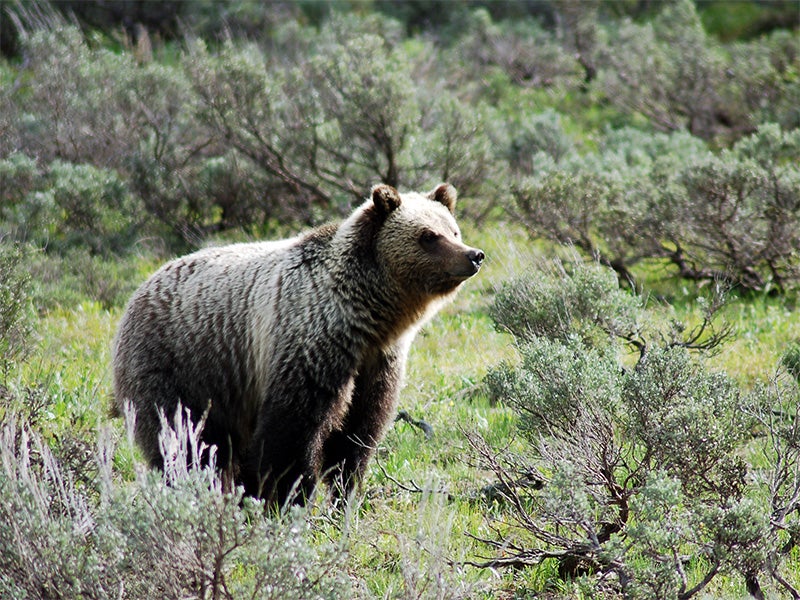Idaho, Montana & National Groups Put Feds on Notice on Bitterroot Road Building
Earthjustice will go to court to protect critical connective ecosystem for grizzly bears
Contact
Earthjustice filed notice that it will challenge federal agencies’ plans to allow increased road building in the Bitterroot National Forest that would cause harm to grizzly bears and bull trout.
Earthjustice will bring claims that the Forest Service and U.S. Fish & Wildlife Service are violating the Endangered Species Act by eliminating road density limitations in its Bitterroot Forest Plan Amendments. The legal organization represents Friends of the Bitterroot, Friends of the Clearwater, Native Ecosystems Council, and WildEarth Guardians.
“The Bitterroot is ground zero for true recovery of grizzly bears in the Lower 48,” said Ben Scrimshaw, Earthjustice attorney. “It is a crucial region for connectivity between the Northern Continental Divide and Greater Yellowstone grizzly populations. Roads are a determining factor when it comes to their ability to migrate, establish permanent presence, and encounter other populations.”
“The Bitterroot National Forest has thousands of miles of roads that continue to choke streams with sediment and fragment wildlife habitat, hindering the recovery of bull trout and grizzly bears,” said Adam Rissien, ReWilding Manager with WildEarth Guardians. “This is not the time to abandon safeguards and expand road building, especially in areas where grizzly bears need better habitat security.”
“With human developments and land uses in our region ever increasing, our public lands become the last refuge for rare and vulnerable native fish and animal populations,” said Jeff Juel, Forest Policy Director for Friends of the Clearwater. “If we truly value our wild neighbors, we must share with them by maintaining protections for their habitat, and not further damage it by prioritizing our own convenience.”
“Allowing an increase in the number of roads on the Bitterroot National Forest will further diminish the wild character of the forest, fragment wildlife habitat, and irreparably harm existing ecosystems,” said Jim Miller, President, Friends of the Bitterroot. “Extensive human intrusions into the forest have already done enough damage and the Forest Service cannot adequately maintain the existing road system. It is time to recognize the forest is a classroom and not a place to satisfy human wants and desires.”
Background:
The Bitterroot National Forest encompasses more than 1.5 million acres of public land in west-central Montana and east-central Idaho. The forest provides important bull trout habitat and increasingly serves as a connectivity area for grizzly bears as they begin to re-populate the Bitterroot Mountains in Idaho and Montana. Currently, the federal government does not recognize any grizzly bear populations in the Bitterroot Ecosystem, though individuals have been verified on its borders.
Previously, the 1987 Management Plan for the Bitterroot National Forest protected bull trout and grizzly bear habitat by carefully managing roads and motor-vehicle recreation. Road use, construction, and maintenance deliver harmful sedimentation to bull trout streams. Similarly, roads and motorized use displace grizzly bears from their habitat and increases the risk of grizzly bear mortalities.
In September 2023, the Forest Service adopted changes to the 1987 Plan which eliminated these protective restrictions without adequately considering resulting impacts to bull trout and grizzly bears. The agencies failed to reconcile their conclusion with well-established grizzly bear science showing that grizzly bears require vast expanses of uninterrupted, secure, roadless habitat.

Additional Resources
About Earthjustice
Earthjustice is the premier nonprofit environmental law organization. We wield the power of law and the strength of partnership to protect people's health, to preserve magnificent places and wildlife, to advance clean energy, and to combat climate change. We are here because the earth needs a good lawyer.